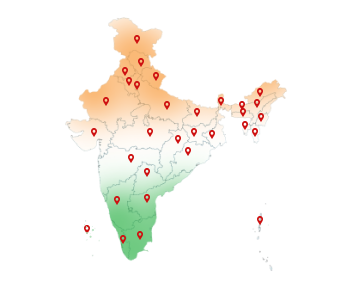20-Feb-2024
Digital Signature for IPR: Securing Intellectual Property
In India, trademarks and patents protect unique ideas and creations. Trademarks safeguard symbols, names, and logos representing businesses or products, while patents protect inventions and discoveries.
To register a trademark, one must apply with the Trademarks Registry. This involves submitting details about the trademark and its intended use. The process includes examination, publication, and, if needed, addressing any oppositions before registration. Once registered, a trademark is valid for 10 years.
For patents, the process starts with filing a patent application with the Indian Patent Office (IPO). This involves describing the invention in detail and disclosing how it works. The application undergoes examination and publication stages before a final decision is made. A patent provides exclusive rights to the inventor for 20 years if granted.
Both trademark and patent registration processes involve using Digital Signature Certificates (DSCs) for online filing and authentication. Digital Signature for IPR helps ensure the security and authenticity of documents submitted electronically.
CGPDTM for Trademarks and Patents
The Controller General of Patents, Designs, and Trademarks (CGPDTM) is a government authority responsible for overseeing the administration and regulation of patents, designs, and trademarks.
The Controller General of Patents, Designs, and Trademarks is the head of the Indian Patent Office, the Designs Wing, and the Trademarks Registry.
Patent Registration in India
The Patents Act, 1970:
The patent registration process in India is governed by the Patents Act, 1970, and the Patents Rules, 2003.
The patent application process involves filing a patent application with the IPO, which can be done electronically or physically.
India follows a first-to-file system, meaning the first person to file a patent application for an invention would have priority.
The patent application goes through various stages including filing, examination, publication, opposition (if any), and grant.
Trademark Registration in India
The Trademarks Act, 1999:
Trademarks in India are registered under the Trademarks Act, 1999, which provides for the registration and better protection of trademarks.
The application can be filed online through the Trademarks Registry's website or physically at one of the Trademarks Registry offices across India.
The application goes through various stages including examination, publication in the Trademarks Journal, opposition (if any), and registration.
Role of Digital Signature for IPR
Filing of Patent Application
The application for trademark registration in India can be filed online through the Trademarks Registry's website.
The DSC ensures the authenticity and integrity of the documents filed online.
Applicants, including individuals, businesses, or their authorized representatives, need to sign the application digitally using a valid Digital Signature for IPR issued by a licensed Certifying Authority (CA).
Communication with Trademarks Registry
Throughout the trademark registration process, including responding to examination reports or other communications from the Trademarks Registry, digital signatures may be required.
Any subsequent filings, responses, or documents submitted during the registration process often require authentication via a DSC.
Role of DSC in Patent Registration
Filing of Patent Application
The patent application process in India allows for electronic filing (e-filing) of patent applications through the IPO portal.
Similarly to trademark registration, applicants or their authorized representatives need to sign the patent application digitally using a valid DSC issued by a licensed CA.
The Digital Signature for IPR ensures the authenticity and integrity of the patent application documents submitted electronically.
Correspondence with Patent Office
Throughout the patent registration process, including responding to examination reports, attending hearings, or submitting other documents, digital signatures play a crucial role.
All communications with the IPO may need to be digitally signed for authentication and compliance purposes.
Conclusion
Digital signature for IPR is special stamps that prove documents are real and unchanged. In India, they're crucial for trademark and patent filings. They help make sure everything is secure and authentic, protecting inventors' and brand owners' rights to their creations.


